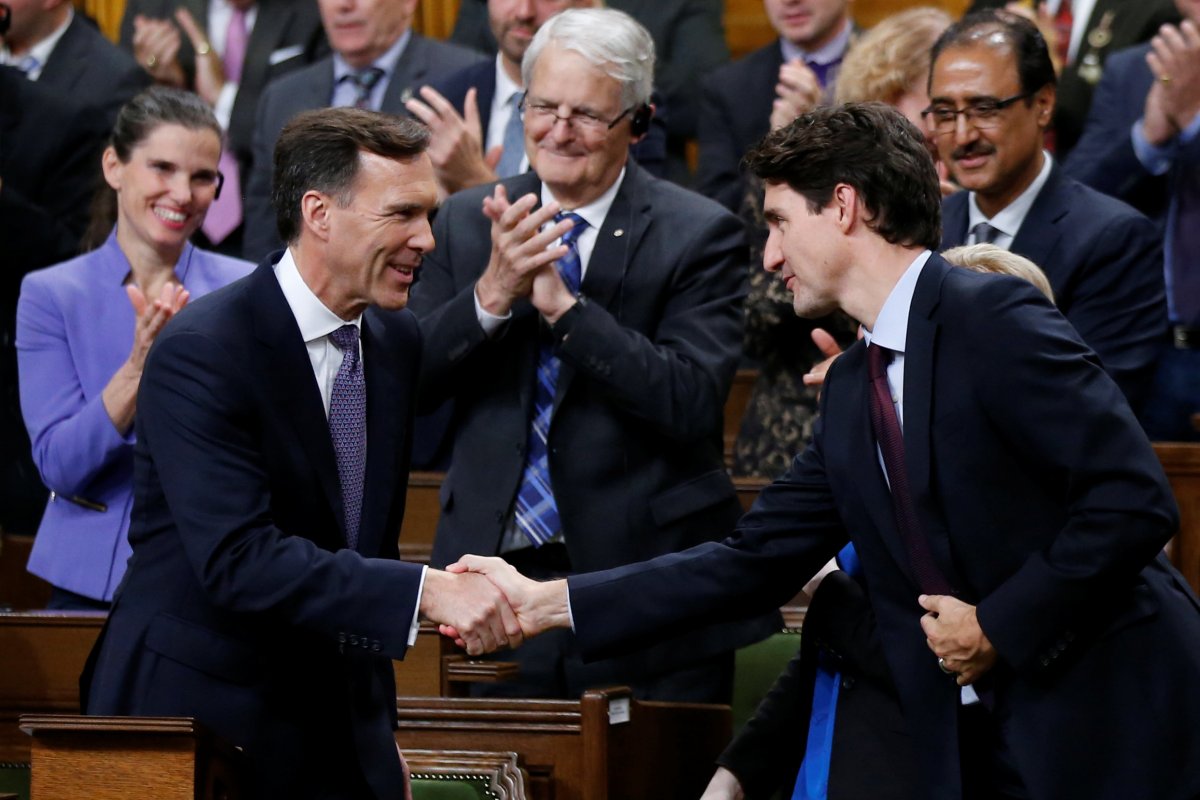Tuesday afternoon, the Liberals announced some good financial news; they will receive an extra $46.6 billion in revenue over the next five years.

Finance Minister Bill Morneau announced that $14.9 billion of the added revenue will go to new spending but he also announced that the country’s deficits are also lower than expected.
The government is now expecting to run a shortfall of $18.4 billion in 2017-18, compared with a projection of $25.5 billion outlined in the budget. For 2018-19, Ottawa is predicting a $15.6-billion deficit, compared with the $24.4-billion projection last spring.
“As we invest directly in Canadians and their families, we have an immediate impact on the economy,” Morneau said in his speech in the House of Commons.
The good financial news comes as the Liberals are deflecting questions on Morneau’s recent handling of conflict-of-interest questions over his multimillion-dollar corporate holdings. Morneau was also recently forced to handle the backlash for his unpopular tax reform proposals he had to scale back.
The Liberals are surely hoping that the good economic news in the update will take some of the public scrutiny off the embattled minister.
But can Morneau and the Liberals take really the credit for the extra money?
Not exactly, experts say.
“I think it’s a little bit of a stretch if you look at it in the balance,” Brian DePratto senior Economist with TD Bank told Global News. “Long story short, I think it’s more the economy than policy.”
Doug Porter, Chief Economist at BMO Financial Group, agreed.
“[The global economy] turned out to be a lot better than expected and that’s handed the government a lot more revenue than they were expecting,” he explained.
He also said that while governments don’t have a huge long-term effect on the economy, there are some short-term effects that the Liberals are responsible for.
“I think there’s little doubt that the increased spending in the last couple years has provided some support for the economy,” he said. “I guess we can debate whether that support was really needed, but overall they can take a little credit for how the economy’s done in the past year.”
So what did give us the extra revenue?
“I would say a lot of things went well all at once,” Porter explained.
The Canadian economy is dependent on the global economy and the stabilizing oil and energy sectors fed into the growing corporate profitability, which led to larger government revenue.
Depratto said there’s also been healthy job growth along with strong consumer spending. Porter also credits a housing boom in Ontario for some of the growth.
Both economists warned that the growth wouldn’t continue at this pace, though.
“Certainly, this kind of big windfall is not likely to be repeated,” Depratto said.
*with files from the Canadian Press










Comments